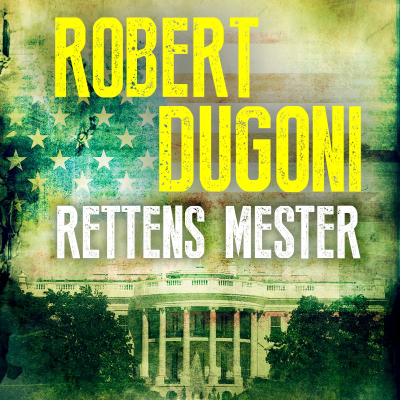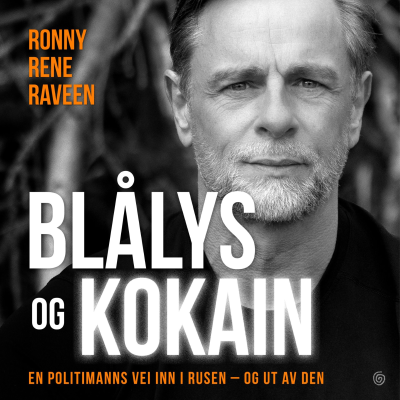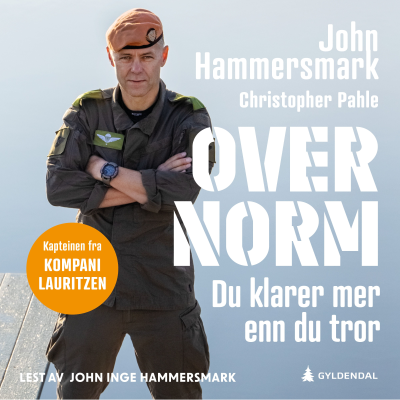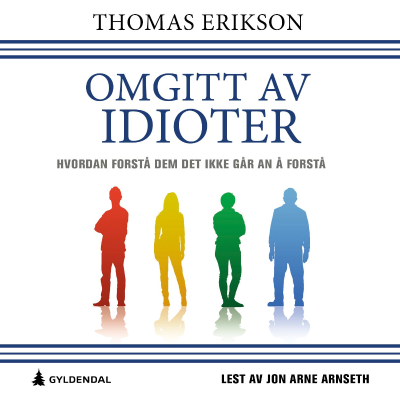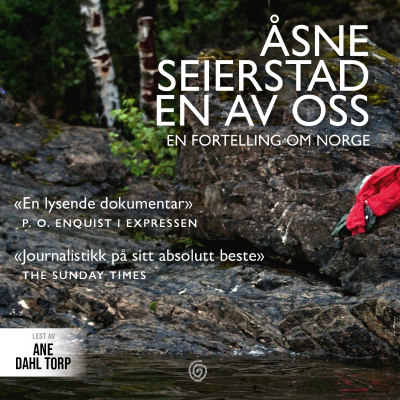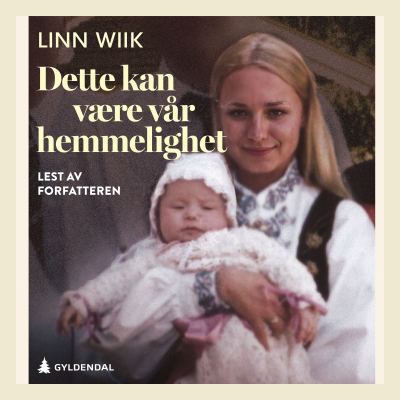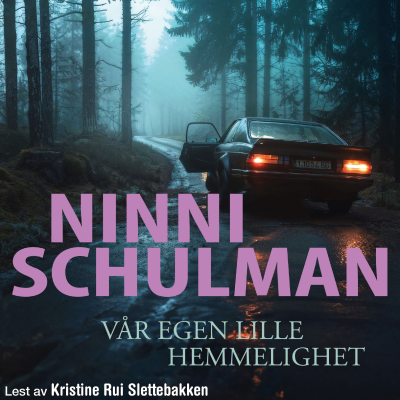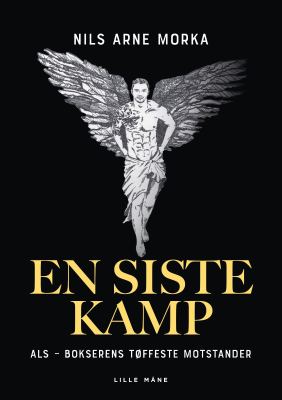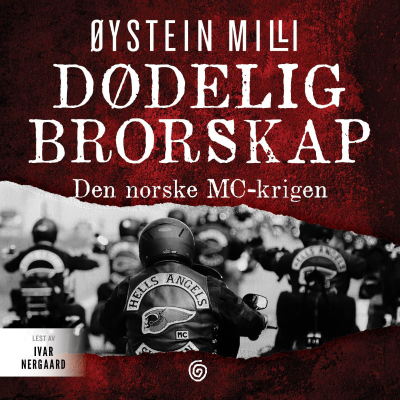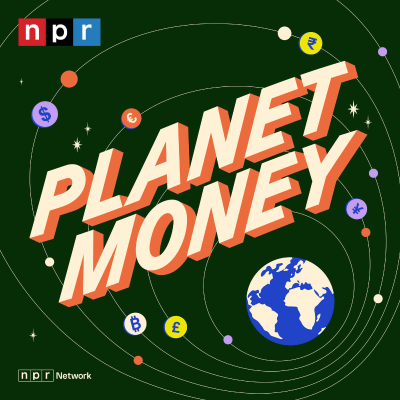
Planet Money
engelsk
Business
Prøv gratis i 14 dager
99 kr / Måned etter prøveperioden.Avslutt når som helst.
- 20 timer lydbøker i måneden
- Eksklusive podkaster
- Gratis podkaster
Les mer Planet Money
Wanna see a trick? Give us any topic and we can tie it back to the economy. At Planet Money, we explore the forces that shape our lives and bring you along for the ride. Don't just understand the economy – understand the world.Wanna go deeper? Subscribe to Planet Money+ and get sponsor-free episodes of Planet Money, The Indicator, and Planet Money Summer School. Plus access to bonus content. It's a new way to support the show you love. Learn more at plus.npr.org/planetmoney
Alle episoder
1343 EpisoderDon't hate the replicator, hate the game
The world of science has been stuck in an existential crisis over whether we actually know the things we thought we knew. Re-running an old study today doesn't always yield the same result. Same with re-enacting old experiments. Collectively, this is known as the “replication crisis.” Economist Abel Brodeur has come up with one way to help fix this crisis: he’s invented an internationally crowdsourced surveillance system, designed to keep social scientists honest. He calls it the “Replication Games.” Further Listening: * Fabricated data in research about honesty. You can't make this stuff up. Or, can you? [https://www.npr.org/2023/07/27/1190568472/dan-ariely-francesca-gino-harvard-dishonesty-fabricated-data] * The Experiment Experiment [https://www.npr.org/sections/money/2016/01/15/463237871/episode-677-the-experiment-experiment] * How Much Should We Trust Economics? [https://www.npr.org/sections/money/2013/04/19/177999020/episode-357-how-much-should-we-trust-economics] This episode was hosted by Mary Childs and Alexi Horowitz-Ghazi. It was produced by James Sneed and Emma Peaslee, with help from Willa Rubin. It was edited by Jess Jiang, fact-checked by Sam Yellowhorse Kesler, and engineered by Ko Takasugi-Czernowin. Alex Goldmark is Planet Money’s executive producer. Find more Planet Money: Facebook [https://n.pr/3h92GwS] / Instagram [https://n.pr/3FqLuws] / TikTok [https://n.pr/3sGZdrq] / Our weekly Newsletter [https://n.pr/3zrFvUB]. Listen free at these links: Apple Podcasts [http://n.pr/PM-digital], Spotify [https://n.pr/3gTkQlR], the NPR app [https://n.pr/3Bkb17W] or anywhere you get podcasts. Help support Planet Money and hear our bonus episodes by subscribing to Planet Money+ in Apple Podcasts [http://n.pr/PM-digital] or at plus.npr.org/planetmoney [https://n.pr/3HlREPz]. To manage podcast ad preferences, review the links below: See pcm.adswizz.com [https://pcm.adswizz.com] for information about our collection and use of personal data for sponsorship and to manage your podcast sponsorship preferences. Learn more about sponsor message choices: podcastchoices.com/adchoices [https://podcastchoices.com/adchoices] NPR Privacy Policy [https://www.npr.org/about-npr/179878450/privacy-policy]
The ICE hiring boom
Live event info and tickets here [https://tix.to/pm-book-tour]. ICE is scaling up, with rapid new hiring. So we ask, has training new officers changed? At what cost? Also, the Trump administration has plans to pour billions of dollars into warehouses for mass immigrant detention centers, which can totally change the economy of some areas. We hear from a rural town in Georgia that wants an ICE facility in its own backyard. These episodes were originally published on Planet Money’s sister daily podcast The Indicator. Pre-order the Planet Money book and get a free gift [https://www.planetmoneybook.com/]. / Subscribe to Planet Money+ [https://n.pr/3HlREPz] Listen free: Apple Podcasts [http://n.pr/PM-digital], Spotify [https://n.pr/3gTkQlR], the NPR app [https://n.pr/3Bkb17W] or anywhere you get podcasts. Listen to the Indicator from Planet Money [https://open.spotify.com/show/4X3yDKgVTWRjSd6r0vhgo4?si=IaygGVB_QYurvweN-1zK-w&nd=1&dlsi=e440f1ac7f3f4d43] Facebook [https://n.pr/3h92GwS] / Instagram [https://n.pr/3FqLuws] / TikTok [https://n.pr/3sGZdrq] / Our weekly Newsletter [https://n.pr/3zrFvUB]. The episodes of The Indicator were produced by Julia Ritchey, with engineering by Jimmy Keeley. They were fact-checked by Sierra Juarez. Kate Concannon is our show's editor. This episode of Planet Money was produced by Luis Gallo, with help from James Sneed. It was edited by Planet Money’s Executive Producer, Alex Goldmark. To manage podcast ad preferences, review the links below: See pcm.adswizz.com [https://pcm.adswizz.com] for information about our collection and use of personal data for sponsorship and to manage your podcast sponsorship preferences. Learn more about sponsor message choices: podcastchoices.com/adchoices [https://podcastchoices.com/adchoices] NPR Privacy Policy [https://www.npr.org/about-npr/179878450/privacy-policy]
The Supreme Court struck down a bunch of Trump's tariffs. Now what?
Live event info and tickets here. [https://tix.to/pm-book-tour] The Supreme Court has spoken. Those big, sweeping tariffs that President Trump imposed early last year? They’re illegal. On today’s show: Why were those tariffs struck down? Will anyone get refunds? And …what about this new 10 percent tariff the President just announced today? Plus — a growing market for tariff refunds. Further Listening: - Worst. Tariffs. Ever. [https://www.npr.org/2024/12/11/1218506684/worst-tariffs-ever-update] - Tariffs: What are they good for? [https://www.npr.org/2025/04/02/1242229719/planet-money-the-case-for-tariffs] - What "Made in China" actually means [https://www.npr.org/2025/05/07/1249592921/tariff-customs-made-in-america-china-france] - The 145% tariff already did its damage [https://www.npr.org/2025/05/16/1251782092/tariff-us-china-pause-trade-war] - Are Trump's tariffs legal? [https://www.npr.org/2025/06/11/1253992700/tariffs-ieepa-trump-legal-emergencies-law] - Days of our Tariffs [https://www.npr.org/2025/11/19/nx-s1-5608384/tariffs-consumers-shipping-shopping-prices] - Trump's backup options for tariffs [https://www.npr.org/2025/11/12/nx-s1-5605545/trumps-backup-options-for-tariffs] - What would it mean to actually refund the tariffs? [https://www.npr.org/2025/12/02/nx-s1-5627159/what-would-it-mean-to-actually-refund-the-tariffs] Pre-order the Planet Money book and get a free gift [https://www.planetmoneybook.com/]. / Subscribe to Planet Money+ [https://n.pr/3HlREPz] Listen free: Apple Podcasts [http://n.pr/PM-digital], Spotify [https://n.pr/3gTkQlR], the NPR app [https://n.pr/3Bkb17W] or anywhere you get podcasts. Facebook [https://n.pr/3h92GwS] / Instagram [https://n.pr/3FqLuws] / TikTok [https://n.pr/3sGZdrq] / Our weekly Newsletter [https://n.pr/3zrFvUB]. This episode was hosted by Jeff Guo, Mary Childs, and Sarah Gonzalez. It was produced by Sam Yellowhorse Kesler and Willa Rubin. It was edited by Marianne McCune. It was fact-checked by Sierra Juarez. Alex Goldmark is Planet Money’s executive producer. To manage podcast ad preferences, review the links below: See pcm.adswizz.com [https://pcm.adswizz.com] for information about our collection and use of personal data for sponsorship and to manage your podcast sponsorship preferences. Learn more about sponsor message choices: podcastchoices.com/adchoices [https://podcastchoices.com/adchoices] NPR Privacy Policy [https://www.npr.org/about-npr/179878450/privacy-policy]
How to get what Greenland has, with permission
Book tour and ticket info here. [https://tix.to/pm-book-tour] Greenland has said it is not for sale. Denmark has said it can’t even legally sell Greenland. And at a security conference in Munich over the weekend, U.S. lawmakers spent a lot of time trying to walk back some of President Trump’s recent threats to try to buy, or even take over, the territory. But whether Trump can or will or should try to control or purchase a territory that doesn’t want to be sold is not the interesting question. What is interesting is how we got to this moment. And, how we might gracefully get out of it. Greenland is valuable for its minerals and because of its physical location in the world. (It’s easy to keep an eye on other countries from Greenland). Our latest: How the U.S. dropped the ball on the rare earths race. And one way the U.S. gets strategic locations without threatening to buy or take over an entire territory. Further listening: - Is Greenland really an untapped land of riches? [https://www.npr.org/2026/01/21/nx-s1-5683139/is-greenland-really-an-untapped-land-of-riches] - Add to cart: Greenland [https://www.npr.org/2025/01/21/1225890655/add-to-cart-greenland] Pre-order the Planet Money book and get a free gift [https://www.planetmoneybook.com/]. / Subscribe to Planet Money+ [https://n.pr/3HlREPz] Listen free: Apple Podcasts [http://n.pr/PM-digital], Spotify [https://n.pr/3gTkQlR], the NPR app [https://n.pr/3Bkb17W] or anywhere you get podcasts. Facebook [https://n.pr/3h92GwS] / Instagram [https://n.pr/3FqLuws] / TikTok [https://n.pr/3sGZdrq] / Our weekly Newsletter [https://n.pr/3zrFvUB]. This episode was produced by Willa Rubin with help from Sam Yellowhorse Kesler. It was edited by Marianne McCune. Fact-checking help from Sierra Juarez. It was engineered by Kwesi Lee and Robert Rodriguez. Alex Goldmark is our executive producer. Music: Universal Music Production - "The Attraction,” “Carnivore,” and “Walls Come Out.” To manage podcast ad preferences, review the links below: See pcm.adswizz.com [https://pcm.adswizz.com] for information about our collection and use of personal data for sponsorship and to manage your podcast sponsorship preferences. Learn more about sponsor message choices: podcastchoices.com/adchoices [https://podcastchoices.com/adchoices] NPR Privacy Policy [https://www.npr.org/about-npr/179878450/privacy-policy]
Betty Boop, Excel Olympics, Penny-isms: Our 2026 Valentines
Book tour event details and ticket info here [https://tix.to/pm-book-tour]. An iconic cartoon character liberated from copyright, journalism from the world of competitive spreadsheeting, a controversial piece of US currency. Each year the Planet Money team dedicates an episode to the things we simply love and think you, our audience, will also love. In this year’s Valentine’s Day episode: * The Public Domain Day list [https://web.law.duke.edu/cspd/publicdomainday/2026/] from Jennifer Jenkins’ of Duke’s Center for the Study of the Public Domain and her colleagues. * Jesse Dougherty’s article “Between the sheets at the college Excel Championship” which is behind a paywall. Here is Jesse’s substack [https://collegesportsmoney.substack.com/]. * 404 Media’s excellent journalism [https://www.404media.co/elite-the-palantir-app-ice-uses-to-find-neighborhoods-to-raid/] on the tech that ICE is using * An ode to the language of the penny, including songs like Pennies from Heaven [https://www.youtube.com/watch?v=vnz_gbDJnhI]. * The only self-check out that doesn’t waste your time. * And we made public domain Valentine’s cards. Download THE OFFICIAL Planet Money valentine here [https://www.dropbox.com/scl/fi/w5jcio1w98okftefdxk3z/Official-Planet-Money-Valentine-2026.pdf?rlkey=8vbbras56o6jigkvmftfvia1b&st=jte9em3s&dl=0]. Pre-order the Planet Money book and get a free gift [https://www.planetmoneybook.com/]. / Subscribe to Planet Money+ [https://n.pr/3HlREPz] Listen free: Apple Podcasts [http://n.pr/PM-digital], Spotify [https://n.pr/3gTkQlR], the NPR app [https://n.pr/3Bkb17W] or anywhere you get podcasts. Facebook [https://n.pr/3h92GwS] / Instagram [https://n.pr/3FqLuws] / TikTok [https://n.pr/3sGZdrq] / Our weekly Newsletter [https://n.pr/3zrFvUB]. This episode of Planet Money was hosted by Kenny Malone. It was produced by James Sneed with help from Sam Yellowhorse Kesler, fact-checked by Sierra Juarez, engineered by Cena Loffredo & Kwesi Lee, and edited by our executive producer Alex Goldmark. To manage podcast ad preferences, review the links below: See pcm.adswizz.com [https://pcm.adswizz.com] for information about our collection and use of personal data for sponsorship and to manage your podcast sponsorship preferences. Learn more about sponsor message choices: podcastchoices.com/adchoices [https://podcastchoices.com/adchoices] NPR Privacy Policy [https://www.npr.org/about-npr/179878450/privacy-policy]
Velg abonnementet ditt
Premium
20 timer lydbøker
Eksklusive podkaster
Gratis podkaster
Avslutt når som helst
Prøv gratis i 14 dager
Deretter 99 kr / måned
Premium Plus
100 timer lydbøker
Eksklusive podkaster
Gratis podkaster
Avslutt når som helst
Prøv gratis i 14 dager
Deretter 169 kr / måned
Prøv gratis i 14 dager. 99 kr / Måned etter prøveperioden. Avslutt når som helst.


























